Bariatric Surgery - Weight Loss Surgery
Bariatric Surgery Success Stories | Weight Loss | Best Bariatric | Top Bariatric | Surat | Gujarat | Ahmedabad | Mumbai | Baroda
What is Bariatric Surgery ? What is Weight Loss Surgery for Obesity ?
- Bariatric surgery (or weight loss surgery) includes a variety of procedures performed on people who have obesity. Bariatric surgery helps you to lose weight by making changes to your digestive system.Most of the surgeries are now done laparoscopically through tiny incisions.
Bariatric surgery is probably the most effective intervention for weight loss we have in health care.
- Some types of bariatric surgeries like Sleeve Gastrectomy make your stomach smaller, allowing you to eat and drink less at one time and making you feel full sooner.
- Other bariatric surgeries like Roux en Y gastric Bypass, Mini Gastric Bypass ( MGB )also change your small intestine —the part of your body that absorbs calories and nutrients from foods and beverages.
- Bariatric surgery may be an option if you have severe obesity and have not been able to lose weight or keep from gaining back any weight you lost using other methods such as lifestyle treatment or medications.
- Bariatric surgery also may be an option if you have serious health problems, such as Type 2 diabetes , Sleep Apnea, Osteoarthritis , Cardiovascular(Heart) problems & many others like PCOD, Infertility, related to obesity.
- Bariatric surgery can resolve / improve many of the medical conditions linked to obesity, especially type 2 diabetes. Long-term studies show the procedures cause significant long-term loss of weight, recovery from diabetes, improvement in cardiovascular risk factors, and a mortality reduction from 40% to 23%
- Bariatric surgery, regardless of the method used, is also much safer nowadays than it was even a decade ago.
- The harsh reality is that the fatter you are, the slimmer your chances of having a normal life and good health.
- So why not find out about bariatric surgery today at one of the top & Best Bariatric Surgeon team of Dr Dharmesh Dhanani & Dr Chintan B Patel at Center for Bariatric Surgery & Weight Loss , Kiran Hospital, Surat , Gujarat , India?
BEST BARIATRIC SURGEON - Celebrating Weight Loss at Kiran Hospital, Surat I Mumbai I Ahmedabad
Freedom From Obesity & Bariatric Support Group Meeting:
Celebrating Weight Loss - 15th August 2018
- held at Kiran Multi Super Speciality Hospital & Research Center, Surat, Gujarat, India Our Center for Weight Loss & Bariatric Surgery is truly dedicated and committed to provide long term Weight Loss Solutions to our Patients by Bariatric Surgery(Weight Loss Surgery)
Center For Weight Loss & Bariatric Surgery, Kiran Hospital, Surat
- One of the leading centers for Bariatric Surgery in India for Long term Weight Loss Solutions for Severe & Morbid Obesity.
Highly Skilled Experienced & Pioneer Team Of Experts
Dr. Dharmesh Dhanani & Dr. Chintan B Patel.
- State of the art & Highest Quality Infrastructure & Technology.
- Highest safety standards & International Protocols.
- Comprehensive Weight Loss Solutions & Follow ups for Best Outcomes.
- One of the best bariatric surgery hospital care available in India.
Myths & Facts I Best Bariatric Surgery I Side Effects I Safe ? -Gujarat I Ahmedabad I Surat I Mumbai
Myths & Facts | Side Effects | Safety | Best Bariatric Surgeon - Gujarat | Ahmedabad | Surat | Mumbai | India
Kiran Hospital is now one of the first hospitals from India to get appreciated for World Class Healthcare services in field of Bariatric Surgery for Weight Loss by being featured in Bariatric times , USA
- Bariatric Times, a peer-reviewed internationally acclaimed journal from Pennsylvania, USA on bariatric trends and developments, the latest clinical and research findings, and current developments in all aspects of products and services utilized in the treatment of obesity and metabolic disorders for best outcomes.
- Surat's Iconic & top hospitals of India - Kiran Multi Super Speciality Hospital, Surat, Gujarat , India is One of the Best Bariatric Surgeon team and top bariatric Hospital in India , Gujarat, Surat & Center truly dedicated and committed to provide long term Weight Loss Solutions to our Patients by Bariatric Surgery (Weight Loss Surgery)
Why Center for Weight Loss & Bariatric Surgery , Kiran Hospital , Surat ?
- Highest Safety Standards
- High volume center
- State of the art & Highest Quality Infrastructure & Technology
- International Protocols
- Comprehensive Weight Loss Solutions & Follow ups for Best Outcomes
- Lowest complication rates
- Almost painless & Faster recovery
- 24 x 7 Dedicated Full time Super Specialist Team
- Best Weight loss programs available with different types of bariatric surgery - Excellent Follow up & regular Bariatric support group meetings
- Bariatric dietitian and nutritionist support

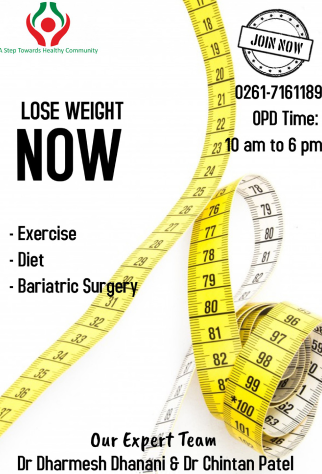
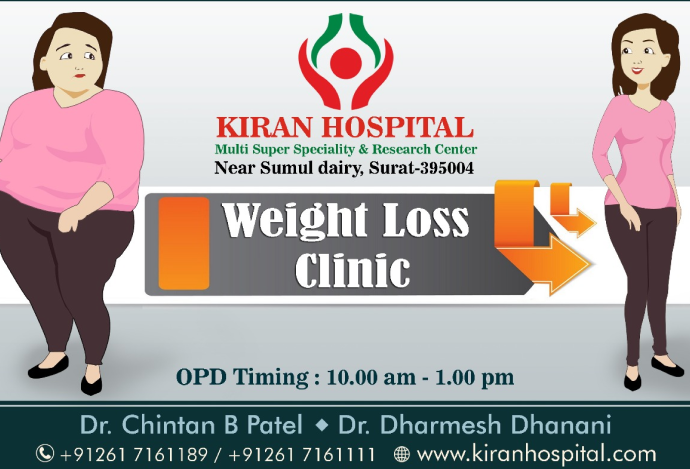
Frequently Asked Questions (FAQs)
How Bariatric Surgery Works I Surat I Gujarat
Bariatric Surgery for weight loss explained in Hindi. What is Bariatric Surgery ? What is Sleeve gastrectomy ? How bariatric surgery works ? Will I ever lose my excess weight? Why some people fail diet and exercise? Are there sustainable weight loss solutions? Are they safe? What is the smart way to conquer obesity? Which are best hospitals in Surat I Gujarat I India ? How Bariatric Surgery Works ? Is it Reliable ? What are the side effects ?
Patients must meet specific criteria before they will be considered for an evaluation with the Kiran Weight Loss, Bariatric & Metabolic Surgery program.
- Have a Body Mass Index (BMI) of greater than 40, or a BMI of >35 accompanied by other issues related to health (co-morbidities). These co-morbidities include diabetes, high blood pressure, coronary artery disease, obstructive sleep apnea, osteoarthritis, hyperlipidemia (high cholesterol, triglycerides, etc), metabolic syndrome, polycystic ovarian disease, etc.
- Be mobile, medically stable, and have an actively involved and supportive primary care physician.
- Have a stable psychological status with adequate social support system to help them through the course of surgery and the postoperative period.
- For Asian population , BMI limits are lowered due to differences in ethnicity, genetic differences and central obesity prevalence.
All surgeries are performed at the Kiran Super Multispeciality Hospital, Surat The average surgical time for gastric bypass is about 2 hours and sleeve gastrectomy is about 1-2 hours. The laparoscopy totally changed bariatric surgery. Almost all our patients can walk a few hours after surgery. They start to have liquids the day after surgery. The majority (more than 95%) of patients only stay in the hospital for two night or three days following surgery.
All surgeries are performed at the Kiran Super Multispeciality Hospital, Surat The average surgical time for gastric bypass is about 2 hours and sleeve gastrectomy is about 1-2 hours. The laparoscopy totally changed bariatric surgery. Almost all our patients can walk a few hours after surgery. They start to have liquids the day after surgery. The majority (more than 95%) of patients only stay in the hospital for two night or three days following surgery.
Most patients have some pain after surgery. However, the pain is usually just a little bit more than laparoscopic gallbladder surgery. Most patients just need to take oral pain medications for a few days after surgery. The majority of our patients felt that pain was not a major issue during their recovery.
As soon as patients totally wake up from anesthesia, we encourage patients to walk. The key is to start slow and listen to your body. If you lift weights or do sports, stay “low impact” for the first month (avoid competition, think participation). If you experience pain or discomfort, stop and relax. Avoid lifting heavy objects for the first 6 weeks. If you swim, your wounds need to be healed over before you get back in the water and always swim slowly at the beginning.
Women generally have significantly increased fertility after weight loss surgery. Birth control pills do NOT work as well in heavy patients and during the time of rapid weight loss. We strongly recommend all child bearing age women to use other ways of contraception after bariatric surgery.
Most surgeons recommend waiting 12-18 months after weight loss surgery before getting pregnant. After losing most of the excess weight, there is much less risk of having problems during pregnancy (gestational diabetes, eclampsia, macrosomia) and during childbirth. There is also decreased risk of having miscarriages and stillbirths. The kids born after mom’s bariatric surgery are less prone to being obese later in their life. Bariatric surgery also reduces the chance of needing a C-section.
Many patients (up to 50%) may regain a small amount of weight (approximately 5 percent) two years or more following their surgery. However, longitudinal studies find that most bariatric surgery patients maintain successful weight-loss long-term.
One study summarizing the results from 22 reports with a total of 4206 patient cases reported good long-term durability of gastric bypass surgery. The average excess weight loss was 66.5%, and there was no significant association between excess weight loss and length of follow-up. Now we have data to support the durability of gastric bypass surgery up to 15 years. Studies also have shown that sleeve gastrectomy patients were able to maintain its well-documented weight loss outcome at 5 or more years after surgery, with the overall mean excess weight loss at 5 or more years still remaining>50%. Such significant and sustained weight loss after surgery is in sharp contrast to medical management.
After losing most of the excess weight, most patients may have some loose or sagging skin. For many patients, this might be just temporary. The degree of loose or sagging skin depends upon several things, including how much weight you lose, your age, your genetics and whether or not you exercise or smoke. Generally, many patients can hide loose skin by clothing or compression garments.
We generally recommend wait for at least 18 months before having plastic surgery. Plastic surgery to remove excess abdominal and breast skin is often covered by insurance because it may cause rash. You may have to pay yourself for the areas such as arms because it is considered cosmetic by your insurer.
For the reasons we still don’t fully understand, hair loss after bariatric surgery is common between 3 and 6 months following surgery. However, hair loss is almost always temporary. Adequate intake of protein, vitamins, biotin and minerals will help to ensure hair re-growth, and avoid longer term thinning.
You will need to take a multivitamin for life. You may need higher doses of certain vitamins or minerals, especially Iron, Calcium, and Vitamin D. You will also need to have at least yearly lab checks.
Why Bariatric Surgery For Weight Loss At Kiran Hospital
- How I lost more than 50 KG weight - True Inspiring Story I Super Hero I Obesity Avengers I India Fights Obesity I Gujarat I Surat I Ahmedabad
- Our Patient had Consulted various Weight Loss Regimens, Diets, Herbal Supplements, gyming, exercise but nothing helped her. She suffered difficulty in walking,
- guilt of obesity, not able to wear fashionable clothing resulting in poor quality of life. In modern age, there are always many options but courage is what it takes to fight obesity like weight loss diets, liposuction, and Bariatric surgery for severe obesity.
- Choosing Weight Loss Surgery is never an easy decision but yes it transforms your life. Bariatric Surgery for Weight Loss not only gave her a new lease of Life but also, she got herself a new beginning, improved self-confidence, Strong Personality apart from
- staggering weight loss of more than 50 KG in short span of time. She attributes her success story to India's One of the best & World-renowned Bariatric surgeon team, Dr Dharmesh Dhanani & Dr Chintan B Patel at top hospitals of India - Kiran Hospital, Surat, Gujarat
Surat's Internationally acclaimed Kiran Hospital, Surat has one of the finest world class bariatric surgery center for weight loss and one of the top bariatric surgery hospitals in India for best weight loss solutions. The Bariatric Program for weight loss surgery at Kiran Hospital, Surat is a unique and is facilitated by vision of Philanthropist Mrs. Laxmiben Lakhani , Kiran Gems whose vision is to reduce the burden of Obesity & its complications and at the same time to provide highest quality bariatric care of International standards to patients with severe Obesity or Morbid Obesity
Highest volume in Surat currently for Bariatric Surgery for Weight Loss -International Standards -Almost Pain Free Recovery -Best Outcomes / Results -Highest safety records -Excellent Follow up & Support Group Meetings -All types of Bariatric surgery & Weight Loss Solutions -Dedicated team of Best Bariatric surgeon in India.
Internationally acclaimed team of Dr. Dharmesh Dhanani & Dr. Chintan B Patel -Dietitian Support -Full time 24x7 availability of Medical Services To know more about Bariatric Surgery and treatment for Obesity & Weight Loss & Appointment Call us at :- +91-261-7161189 / 1111 10.00 am to 6.00 pm (Except Sunday & Public Holidays).
Facebook :-
Twitter :-
One of the Best Bariatric Surgery Hospital for weight loss surgery in India , Gujarat, Surat & Center truly dedicated and committed to provide long term Weight Loss Solutions to our Patients by Bariatric Surgery(Weight Loss Surgery)
A World Class bariatric center at Kiran Hospital in Surat , Gujarat , supported by Multidisciplinary Team for holistic care and excellent follow-up.
High success rate and low complications.
Thorough preparation and follow-up programs one of its kind in Surat with regular support group meetings to help you succeed in your weight loss mission.
Center for Weight Loss & Bariatric Surgery, Surat, Gujarat, India at Kiran Multi Super Speciality Hospital & Research Center, Surat, Gujarat, India One of the Best Bariatric Surgery Center truly dedicated and committed to provide long term Weight Loss Solutions to our Patients by Bariatric Surgery(Weight Loss Surgery) -Highly skilled experienced & Pioneer team of Experts - Dr. Dharmesh Dhanani & Dr. Chintan B Patel. - State of the art & Highest Quality Infrastructure & Technology -Highest safety standards & International Protocols -Comprehensive Weight Loss Solutions & Follow ups for Best Outcomes To know more about Bariatric Surgery and treatment for Obesity & Weight Loss & Appointment Call us at :- +91-261-7161189 / 1111 10.00 am to 6.00 pm (Except Sunday & Public Holidays)
Here is what Mr. Karshanbhai on his weight loss attempts & difficulties in day to day life regarding Obesity.:- "I had developed Cardiac problems due to increasing weight and had undergone two angioplasty procedures.I tried for weight loss but failed in all my attempts , be it exercise , gym, walking or diet. Then i decided for Life changing decision of Bariatric surgery for healthy life ahead.Due to my cardiac history, i opted for Bariatric Surgery at one of the best bariatric hospital in Gujarat as i wanted my bariatric surgery to be completely safe." "I recommend this center and the surgeon team of Dr Dharmesh Dhanani and Dr. Chintan B Patel for anyone who is thinking of Bariatric Surgery for weight loss not only in Surat but in entire Gujarat."
For thousands of years, Diabetes is considered as non-reversible and progressive disease.
However, observations by surgeons since early 1980s and long term studies across the world show that most patients undergoing Bariatric or Metabolic surgery achieved sustainable remission of type 2 diabetes.
What is this surgery? Is it proven? Isn't it more dangerous than taking medicines? Isn't it expensive? Is it reliable? What are the risks? Who qualifies?
Which are best hospitals in Surat I Gujarat I India ? How Bariatric Surgery Works ? Is it Reliable ? What are the side effects ?
Ask Questions | Know Your Options | Take Charge
Most of the improvement in knee pain that occurs following bariatric surgery in obese patients with knee osteoarthritis happens in the first month after surgery, well before the bulk of the weight loss takes place.
Bariatric surgery’s mechanism of benefit in patients with knee osteoarthritis (OA) isn’t simply a matter of reduced mechanical load on the joints caused by a lessened weight burden.
Post–bariatric surgery changes in inflammatory biomarkers, especially leptin, may help to explain the symptomatic relief of knee pain – and potential joint preservation.
Obese patients with knee Osteoarthritis (OA) are in a catch-22 situation. Obese individuals are at greatly increased lifetime risk of developing knee OA, and patients with chronic knee pain have a tough time losing weight.
The treatments that might work with either obesity or knee pain alone often fail when both of these are present.
That’s why bariatric surgery is becoming an increasingly popular treatment strategy in these patients. Sleeve gastrectomy, Mini gastric bypass, Roux en Y Gastric Bypass and laparoscopic adjustable gastric banding are all effective treatments for obesity in the presence of Knee Joint pain ( Arthritis ).
Body Mass Index (BMI)Calculator
Body Mass Index (BMI)
The calculations are based on WHO recommendations.

What is BMI or Body Mass Index ?
The body mass index (BMI) is a value derived from the mass (weight) and height of an individual. The BMI is defined as the body mass divided by the square of the body height, and is universally expressed in units of kg/m2, resulting from mass in kilograms and height in metres.
What is Obesity ?
Obesity is a condition that is associated with having an excess amount of body fat, defined by genetic and environmental factors that are difficult to control when dieting. Obesity is classified as having a Body Mass Index (BMI) of 30 or greater. BMI is a tool used to measure obesity.
Who is a Candidate for Bariatric Surgery or Weight loss surgery ?
Qualifications / International guidelines for bariatric surgery in most areas include:
1) BMI ≥ 40, or
2) BMI ≥ 35 and at least one or more obesity-related co-morbidities such as type II diabetes (T2DM), hypertension, sleep apnea and other respiratory disorders, non-alcoholic fatty liver disease, osteoarthritis, lipid abnormalities, gastrointestinal disorders, or heart disease. Inability to achieve a healthy weight loss sustained for a period of time with prior weight loss efforts.
For Asian or Indian population, Cut off Guidelines are lowered due to high percentage of body fat & elevated risks of Type 2 diabetes, hypertension, and hyperlipidemia at a relatively low level of BMI.
Dr. Dharmesh Dhanani & Dr. Chintan B Patel from Center for Weight Loss & Bariatric Surgery , Kiran Multi Super Speciality Hospital , Surat answers questions from popular RJ Krutika - Radio City Surat
What is Diabetes Surgery / Bariatric surgery ?
What is Obesity ? What is BMI (Body Mass Index) ?
Who Qualifies for Bariatric / Diabetes Surgery ?
What can be the benefits of operation vs risks of living with Diabetes ?
Types Of Bariatric Surgery
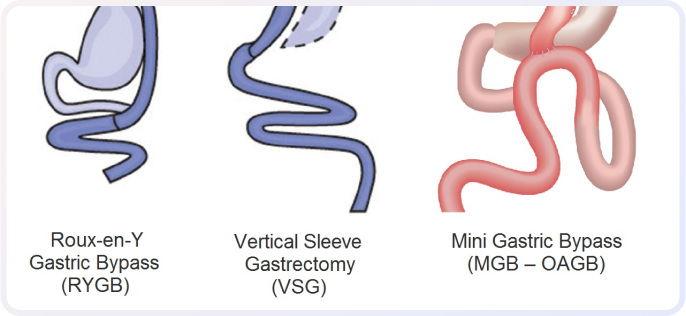
1. Vertical Sleeve Gastrectomy ( VSG )
2. Mini Gastric Bypass ( MGB – OAGB )
3. Roux en Y gastric bypass ( RYGB )
- Each bariatric procedure offers unique benefits and risks. Patient age, health status and preferences factor into decisions about which procedure is appropriate.
- Bariatric surgical procedures cause weight loss by restricting the amount of food the stomach can hold, causing malabsorption of nutrients, or by a combination of both gastric restriction and malabsorption. Bariatric surgeries also often cause hormonal changes.
- Most weight loss surgeries today are performed using minimally invasive techniques (Laparoscopic surgery) or Key Hole Surgeries.
- Each surgery has its own advantages and disadvantages.
Vertical Sleeve Gastrectomy ( VSG )
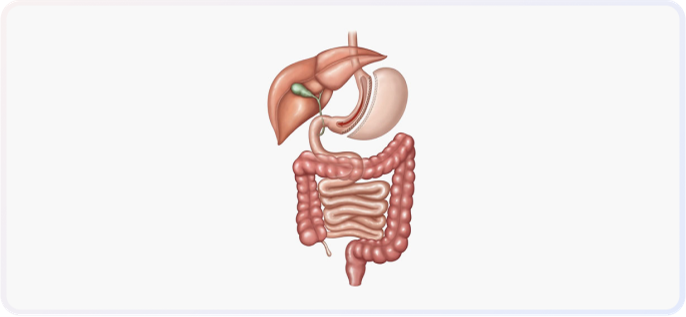
Everything You Wanted To Know About Sleeve Gastrectomy Patient Information For Sleeve Gastrectomy
Bariatric Surgery (Surgery For Obesity) Includes Several Different Types Of Surgeries Or Operations.
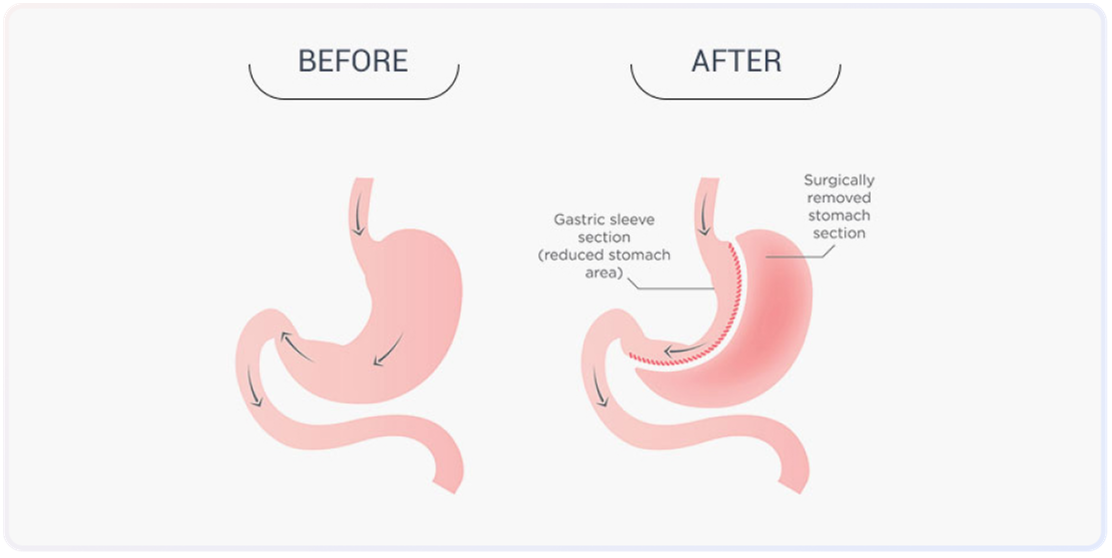
- Sleeve gastrectomy, also known as vertical sleeve gastrectomy, is a surgical weight loss procedure and commonly performed bariatric surgery worldwide.
- Surgeon removes about 75-80 percent of stomach along , creating a long, banana-shaped stomach pouch.
- Sleeve gastrectomy is purely a restrictive procedure.
Sleeve gastrectomy is performed as a laparoscopic procedure.
It involves making five or six small incisions in the abdomen and performing the surgery using a video camera (laparoscope) and long instruments that are placed through these small incisions.
Laparoscopic procedures have many advantages,including less pain, a shorter hospital stay, and a quicker recovery, as well as significantly reduced risk of wound infection or hernias.
Sleeve Gastrectomy a type of Weight loss / Bariatric surgery is explained in Hindi in the YouTube Link
The sleeve gastrectomy which is a type of bariatric surgery takes one to two hours to complete.
Sleeve gastrectomy is a restrictive procedure. It greatly reduces the size of your stomach and limits the amount of food that can be eaten at one time. It does not cause decreased absorption of nutrients or bypass your intestines. After eating a small amount of food, you will feel full very quickly and continue to feel full for several hours.
Sleeve gastrectomy may also cause a decrease in appetite, increased satiety. Patient starts developing preference for Healthy food at Brain (Mind) Level .
In addition to reducing the size of the stomach, sleeve gastrectomy also reduces the amount of "hunger hormone" Ghrelin produced by fundus of the stomach which contributes to weight loss after this procedure.
Bariatric surgery reduces the risk of death from obesity and Improves life Expectancy

Long-Term Survival Benefit After Metabolic and Bariatric Surgery | American Society for Metabolic and Bariatric Surgery
asmbs.org
The following position statement has been issued by the American Society for Metabolic and Bariatric Surgery in response to numerous inquiries made to the Society by patients, physicians, society members, hospitals, health insurance payors, the media, and others regarding the benefit of metabolic and bariatric surgery on long-term survival.
Many obesity-related conditions such as type II diabetes mellitus, obstructive sleep apnoea, joint pain, lipid (cholesterol) abnormalities and high blood pressure, cardiac problems are either completely resolved or substantially improved.
Diabetes, hypertension, obstructive sleep apnea and abnormal cholesterol levels are improved or cured in more than 75% of patients undergoing Laparoscopic Sleeve Gastrectomy.
Most patients achieve good to excellent weight loss results following gastric sleeve surgery.
Depending on their pre-operative weight, most of the patients can expect to lose between 60 – 70 % of their excess body weight (EBW) in the first year after surgery and can lose more weight over the next 6 to 12 months. Weight will usually stabilise after this.
There can be some weight regain, but this is usually minor as long as you have putsome lifestyle changes into practise as advised by the weight management team and the surgical team.
Long-term sustained weight loss and improvement in obesity-related health conditions will only occur with healthy eating and regular exercise.
Laparoscopic sleeve gastrectomy procedure ( Bariatric Surgery ) is best seen as a tool that makes these lifestyle changes sustainable.
Like any surgery, bariatric surgery has its own risks. In the past, bariatric surgery had high complication rates, but the safety of bariatric surgery has improved dramatically over the past 15-20 years.
In fact, nowadays, bariatric surgery is as safe as the commonly performed gallbladder removal surgery or Knee replacement surgery.
Let us take the most popular bariatric procedure, gastric sleeve surgery, as an example. The potential complications of gastric sleeve surgery include leak, stricture, infection, blood clots, acid reflux and vitamin deficiency. However, the chance to have those complications is very low now. For example, the incidence of leak following a gastric sleeve surgery is less than 1% nationwide.
On the other hand, the weight loss that results from bariatric surgery can lead to profound health and psychosocial benefits. In the long term, bariatric surgery has been proven to reduce patients' risks for heart attack, stroke, cancer and mortality
For many obese patients, bariatric surgery not only increases their life expectancy but also improves their quality of life. For people with morbid obesity, especially those with comorbidities, not having bariatric surgery might be more dangerous than having surgery in the long term.
In conclusion, Bariatric Surgery can be considered a safe procedure in people with diabetes, with similar short-term morbidity to that of common procedures such as cholecystectomy and appendectomy and a mortality rate similar to that of knee arthroplasty.

How safe is metabolic/diabetes surgery? - PubMed - NCBI
www.ncbi.nlm.nih.gov
Diabetes Obes Metab. 2015 Feb;17(2):198-201. doi: 10.1111/dom.12405. Epub 2014 Nov 19.

Gastric Bypass is as Safe as Commonly Performed Surgeries – Health Essentials from Cleveland Clinic
health.clevelandclinic.org
Gastric Bypass is as Safe as Commonly Performed Surgeries. A new study shows that complication and death rates for laparoscopic gastric bypass surgery for patients with type 2 diabetes is ...

How Safe is Bariatric Surgery? - Medscape
www.medscape.com
The use of bariatric surgery for the treatment of morbid obesity has increased dramatically over the past decade, which has raised concerns about safety, efficacy, and cost-effectiveness.
There are risks that are common to any laparoscopic procedure such as bleeding, infection, injury to other organs, or the need to convert to an open procedure.
There is also a small risk of a leak from the staple line used to divide the stomach. These problems are rare and major complications occur less than 1% of the time.
It's possible to not lose enough weight or to regain weight after weight-loss surgery. This weight gain can happen if you don't follow the recommended lifestyle changes.
If you frequently snack on high-calorie foods, for instance, you may have inadequate weight loss.
To help avoid regaining weight, you must make permanent healthy changes in your diet and get regular physical activity and exercise.
Which are best hospitals in Surat I Gujarat I India ? How Bariatric Surgery Works ? Is it Reliable ? What are the side effects ?
Attend our Bariatric Support Group meet – One of the largest patient support group meet to address weight related issues , motivate and celebrate weight loss.
Take A Glimpse Of Our Bariatric Support Group Meeting For Obesity
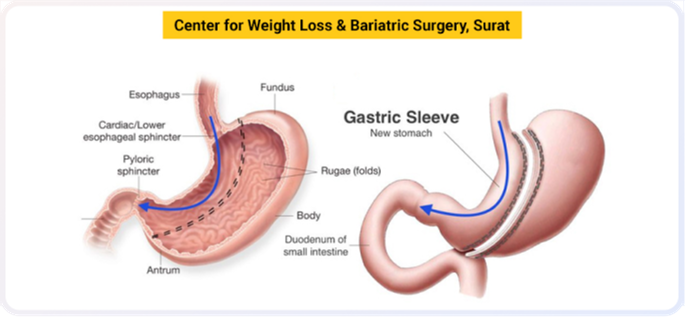
It's important to keep all of your scheduled follow-up appointments after weight loss surgery so your doctor can monitor your progress.
If you notice that you aren't losing weight or you develop complications after your surgery, see your doctor immediately.
Summary of Sleeve Gastrectomy in short :
Advantages Or Pros
Weight loss generally is generally faster with the sleeve than with the gastric band.No bypass or re-routing changes to intestines & food stream.
No foreign object like band placed in body.
Shorter hospital stay & Fast recovery
Restricts the amount of food the stomach can hold
Induces rapid and significant weight loss of 60 – 70 % of their excess body weight (EBW)
Causes favourable changes in gut hormones like that suppress hunger, reduce appetite and improve satiety
No effect on the absorption of calories and nutrients in the intestines, so less vitamin, calcium , protein deficiency.
Disadvantages Or Cons
Cannot be reversed.
Chance of acid reflux
Mini Gastric Bypass ( MGB – OAGB )
Everything You Wanted To Know About Mini Gastric Bypass - OAGB
Patient guide & Information For Mini gastric Bypass - OAGB
What Is This Mini Gastric Bypass Surgery ( MGB ) Or OAGB ( One Anastomosis Gastric Bypass ) ?
Mini Gastric Bypass is a type of Bariatric surgery for weight loss and very popular in Asian Contient & India
The Mini Gastric Bypass is performed laparoscopically
Performed by dividing approximately a twenty five percent section of stomach from the rest of the stomach.
This gastric pouch is then joined to the small intestine above the new anastomosis. Anastomosis simply means a new surgical connection.
This results in the majority of the stomach and approximately one third of the small intestine being ‘bypassed’ – meaning it is not involved in the digestion or absorption of the food you eat.
- Feel full sooner while eating
- Absorb fewer calories and minerals
- Lose up to 3/4 of their excess weight within few months
- Have significant health improvement
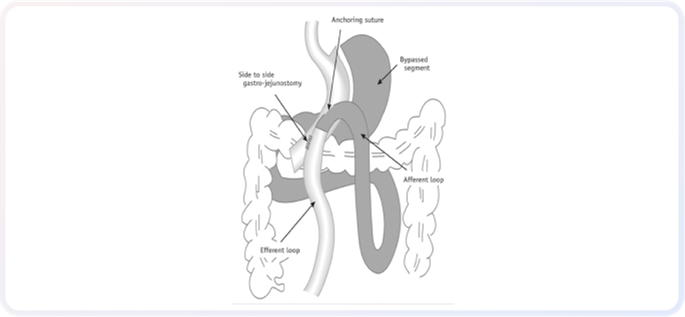
Why Mini Gastric Bypass Works ?
Mini gastric bypass surgery (MGB - OAGB) makes the stomach smaller and reroutes the intestines. As a result, patients
Your reduced stomach size will make you feel full sooner while eating
Your intestines that absorb nutrients are re-routed / shortened, causing the body to absorb fewer calories and minerals
How The Mini Gastric Bypass Helps You Lose Weight ?
Restriction:
- A small stomach pouch is created limiting the amount you can eat.
Malabsorption:
- A portion of the small intestine is bypassed. Since the small intestine is responsible for absorbing calories from the food you eat, bypassing a portion of it results in fewer calories being absorbed, thus resulting in weight loss.
Hormonal:
- Mini Gastric Bypass creates many new hormonal changes. Ghrelin, named the "Hunger Hormone" is responsible for hunger and appetite. Ghrelin level is decreased after bypass and results in reduced hunger and appetite.
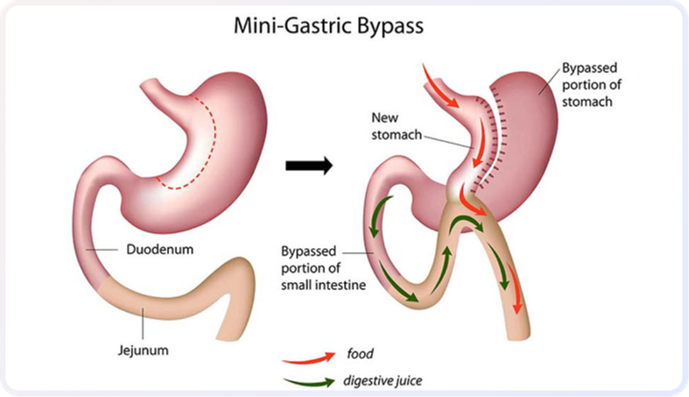
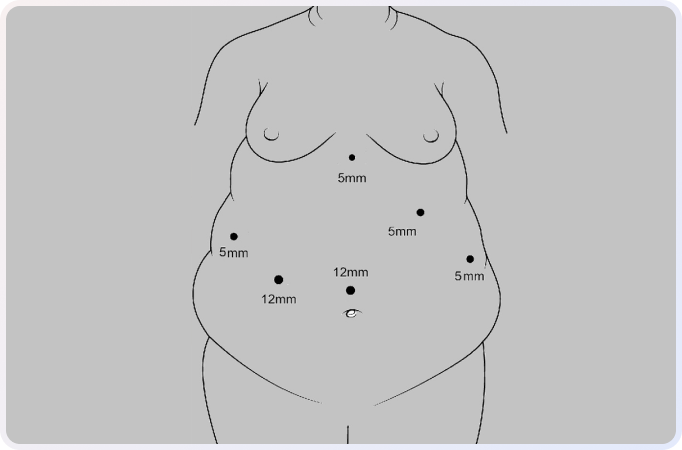
How This Bariatric Surgery – MGB Is Performed ?
- As the name suggests, Mini gastric bypass or MGB is a type of bariatric surgery for weight loss is a simplified form of Roux-en-Y (RNY) gastric bypass surgery.
Duration of Surgery:
- Most of these surgeries takes about 1-2 hours to complete
- Laparoscopic Mini Gastric Bypass surgery is performed by making very small Button hole Incisions of 0.5 to 1.2 cm on abdomen as shown in most of the conventional cases.
- During the laparoscopic procedure, your best bariatric surgeon team will
- Reduce the size of the stomach by 75%. Leave the remainder of the stomach attached to the top of the small intestines.
- Attach the new stomach about 150 – 200 cm down the small intestines to bypass the upper portion of the small intestines and to allow the digestive juices produced by the stomach to “meet up” with food further down the intestines.
What Are Advantages Or Benefits Of Mini Gastric Bypass Over Other Types Of Bariatric Surgeries ?
- Simple and successful
- Safe, effective, reversible & revisable weight loss/ bariatric procedure.
- It involves only one anastomosis (joint).
- Takes less than 1 - 2 hours to perform in conventional cases
- Short Hospital stay
- Good long term weight loss
- High resolution of Diabetes, high blood pressure – Hypertension , high cholesterol / lipid profile , obstructive sleep apnea ( OSA ) / Snoring • • •
- There is no external device or foreign object left inside the body like with Lap Band, Ring, gastric balloon, and vBloc Therapy, so there is no risk of device-related side effects or complications.
- Durable weight loss / bariatric procedure in the long run as it dilates less owing to a low pressure inside the pouch because of the bigger outlet as compared to the old classical bariatric /weight loss surgery techniques.
- Relatively bigger pouch and outlet, which gives you some luxury for foodies / Sweet eaters / Dessert Lovers to eat a moderate volume of diet & still lose significant weight.

Life After Bariatric Surgery
Recovery Time

How Fast Is The Recovery Course After Weight Loss Or Bariatric Surgery ?
- Walking : Patient is able to start walking immediately few hours after surgery.
- Diet : Liquid diet is started within 24 – 48 hours after Bariatric Surgery
- Hospital Stay: Average 1 to 4 Days in Hospital
- Time Off Work: 10 to 14 Days
- Full Recovery: Most patients have fully recovered in 2 to 3 weeks
- Air / Road / Rail Travel – Can be Considered in 1-3 weeks as patient gets comfortable like For Overseas, NRI & Medical tourism Patient
- In Severe Obesity patients & Long Travel time , DVT prophylaxis can be given in special cases.
Weight Loss After Surgery - How Much & How Fast?
How fast is the Wight Loss after Bariatric surgery ?
- Bariatric Surgery is a very powerful tool for Weight loss & better control of Diabetes and Improved Quality of Life
- One can lose up to 75% of your excess body weight ( EBW ) within 1 year
- Average 3 months weight loss: One-third of excess weight
- Average 1 year weight loss: 2/3 to 3/4 of excess weight
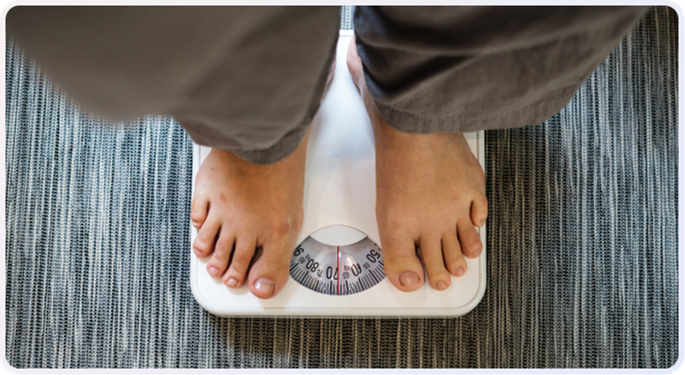

Typically patients usually lose a lot of weight very quickly, and they tend to keep the weight off over the long term:
- Many patients reach “peak” or highest weight loss between one to two years
- Long-term weight loss results are impressive, with the average patient keeping over 70% of their excess weight off at 10 years post operatively
- Keep in mind that these are average – “middle of the road” results
- Patients who eat the right foods, exercise regularly, motivated and follow their surgeon’s advice can lose even more weight, while patients who veer off-track lose less
Smoking-Tobacco
Q1: Can I Smoke or Use Tobacco Before & After Bariatric surgery?

Smoking / Tobacco & Bariatric Surgery
- To have a lower risk of complications with weight-loss surgery, almost every bariatric surgery program will recommend that you quit smoking or stop using chewing tobacco prior to your surgery. Hopefully, this can be an opportunity for you to kick the habit for good.

Smoking or chewing tobacco leads to decreased blood supply to your body’s tissues and delays healing. Smoking harms every organ in the body and is been linked to:
- Blood clots & Pulmonary embolism
- Marginal ulcers in stomach after gastric bypass / bariatric surgery
- Heart disease
- Stroke
- Chronic obstructive pulmonary (lung) disease
- Increased risk for hip fracture
- Cataracts
- Cancer of the mouth, throat, esophagus, larynx (voice box), stomach, pancreas, bladder, cervix, and kidney
Abstinence from smoking will improve healing rates, Better Blood pressure control & leads to faster recovery after Weight Loss surgery.
4 - 6 weeks is needed to reduce the risk of fatal blood clots and pneumonia, staple line leaks , poor wound healing etc .
Your surgeon team will have specific guidelines on how long you must be tobacco-free before surgery, and many will reschedule surgery until you are “clean.”
Be honest with your bariatric surgeon about how much you smoke and about your history of quitting attempts. As your surgery date approaches, continue to keep your surgeon informed of your smoking cessation efforts.
Quitting smoking is difficult, and there’s no reason to do it alone.
Your surgeon team can be your friend & support as you start your WEIGHT LOSS journey toward a healthier lifestyle and happier future.
Alcohol & Bariatric Surgery
Q.Can I drink alcohol after weight loss surgery?

Drinking Alcohol
- Alcohol is not recommended after bariatric surgery. Alcohol contains calories but minimal nutrition and will work against your weight loss goal.
- For example, wine contains twice the calories per ml that regular soda does. The absorption of alcohol changes with gastric bypass and gastric sleeve because an enzyme in the stomach which usually begins to digest alcohol is absent or greatly reduced.
- Alcohol may also be absorbed more quickly into the body after gastric bypass or gastric sleeve. The absorbed alcohol will be more potent, and studies have demonstrated that obesity surgery patients reach a higher alcohol level and maintain the higher levels for a longer period than others.
- In some patients, alcohol use can increase and lead to alcohol dependence.
- For all of these reasons, it is recommended to avoid alcohol after bariatric surgery
- Presently, there are no official guidelines that have been established pertaining to the use of alcohol after having bariatric surgery.
- However, based upon knowledge of changes in the absorption and metabolism of alcohol, coupled with the metabolic state of the bariatric patient at various stages postoperatively, the following suggestions are recommended:
- Do NOT drink alcohol during the rapid weight loss period of first 6 months.
- When drinking, remember that small amounts of alcohol can cause intoxication or can result in low blood glucose with serious consequences.
- Do not drive or operate heavy equipment after drinking alcohol—even small amounts.
- Eat if you plan to have a drink.
- Make certain to take your bariatric vitamin and mineral supplements.
- Avoid carbonated beverages and sugary drink mixers.
- If you find yourself drinking regularly to cope with emotions or stress, seek help by consulting with your doctor.
Pregnancy & Bariatric Surgery
Q: Is it safe to get pregnant after I have bariatric surgery?

Pregnancy After Bariatric Surgery
- It is recommended you avoid getting pregnant for 12-18 months after surgery. This allows you to have maximum weight loss and reach a stable weight. You will also be very limited in your nutrient intake for quite some time after surgery.

- You can experience a boost in fertility quite soon after surgery, so it is important to use a barrier method of birth control such as IUD, or condoms and spermicide to ensure you do not become pregnant.
- Birth control pills are much less effective patients with obesity and in the phase of rapid weight loss.
- If you do become pregnant, please contact your bariatric surgeon and your obstetrician to monitor your progress. You will need to closely monitor your nutrient intake and be evaluated for vitamin deficiencies.
- Overall, pregnancy after weight loss surgery can be done safely, by taking steps to minimize risks to your body and to the developing fetus.
- Studies demonstrate a decreased risk of pregnancy-induced hypertension (high blood pressure) and a decreased risk for gestational diabetes. For best outcomes, discuss your options with your surgeon and obstetrician.
Loose Skin - Laxity Of Skin

- Any kind of weight loss can cause skin laxity whether by diet / Physical activity / Bariatric surgery
- Patients of old age, Weight more than 150 kg , Lack of exercise & Lack of protein Intake usually have more skin laxity .
- Bariatric surgery causes most patients to lose weight fast, and for some patients, the skin simply can’t keep up.
- Regular exercise usually suffices in most of our patients following bariatric surgery
- Whether you experience sagging skin depends on how much weight you have to lose, whether you exercise, your age, and if you smoke
- Options for addressing sagging skin or loose skin / Lax skin include:
- Body-contouring undergarments
- Regular Exercise / Walking / Gyming – Focus on your muscle
- Increase Protein intake
Body Contouring After Massive Weight Loss
- Only In very severe cases esp Patients with more weight more than 150 Kg , Plastic surgery like abdominoplasty , Brachioplasty, tummy tuck, to remove the excess skin can be considered in severe cases after weight stabilization which is generally 1-3 years after bariatric surgery
- Stable weight. A plateau in weight loss is achieved following bariatric surgery, and this is an ideal time to consider body contouring. Premature surgery prior to this point is not advisable as further weight loss will detract from the patient’s overall result with recurrent skin laxity.
Techniques
- Many terms are used to describe techniques utilized by plastic surgeons to remove skin excess in different areas of the body, and a brief description of some of the more commonly used terms is prudent. Several of the following techniques have been designed specifically for post-bariatric patients to address their unique anatomy.
- Panniculectomy
- Abdominoplasty
- Lower body lift/belt lipectomy
- Brachioplasty (arm lift)
- Vertical thigh lift
- Breast reduction/reduction mammaplasty / Mastopexy (breast lift) / Gynecomastia correction
Here Some Of
Patients Speak
And Share Their Experiences




